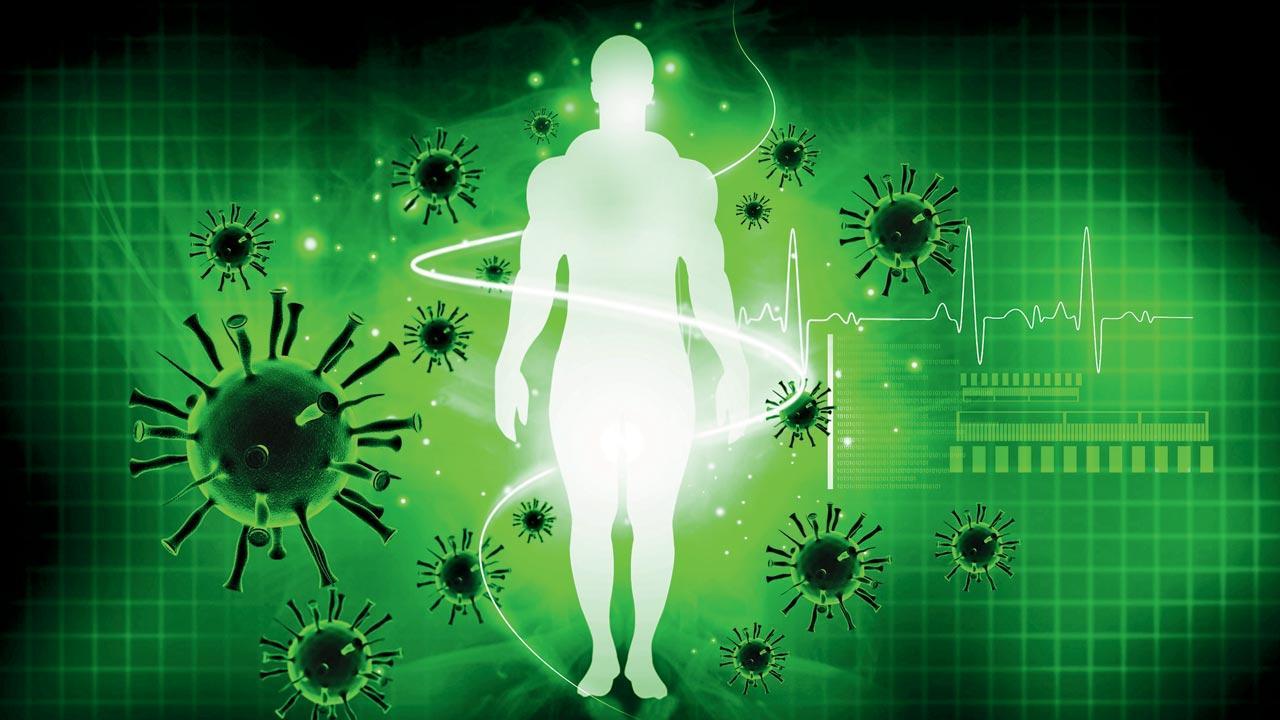Like brat children of trillionaire daddies, we’ve destroyed everything that we’ve touched. We’re not the crown of creation, we’re god’s afterthought

Your body has about 40 trillion bacteria and 400 trillion viruses—considerably more than the number of human cells. You are more bacteria and viruses than yourself
 Alex started it with a seemingly innocent question, as always: “Why do we have Sundays?”
Alex started it with a seemingly innocent question, as always: “Why do we have Sundays?”
ADVERTISEMENT
Alex may not be his real name but he has Asperger’s syndrome and he is cleverer at 12 than most people at 35. His real name might be Alec or Abbas or Somchai. Sometimes I call him Alok.
His questions always whip me up into a frenzy of ignorance. I had no idea why someone decided that a week should be seven rather than six or eight days, nor why the seventh day had to be a day of rest.
I reached out to a friend who was busy decorating her Christmas tree. She said that because god rested on the seventh day after six days of creation, that became known as a week, and everyone thought the weekend was a pretty neat idea.
I asked for more details. In the beginning, I was told, it was all dark and nothing. But on Day 1, god created light. Of course, there was nothing to see yet.
Day 2: God created an above and a below, put in a dome in between, like a sky placeholder, and called the above part heaven.
Day 3: He created planet Earth, with dry land surrounded by water and lots of green.
Day 4: Next came the sun, the moon and stars, as well as a few planets.
Day 5: Fish and birds.
Day 6: This is the big day. God created animals and then, maybe inspired, he created human beings in his own image. and gave them complete ownership over everything else. His precise instructions, according to one account, “Be fruitful and multiply, and replenish the earth, and subdue it.”
On the seventh day, he rested, because making the whole universe that fast can take the mickey out of anyone. There you have it, Alex: Sunday was born.
This created a flurry of new questions. A day, Alex pointed out, is the time it takes Earth to complete one rotation. But there wasn’t even an Earth till Day 3, what was god counting as a ‘day’ on Days 1 and 2?
A ‘day’, I told Alex, is probably just code for ‘a really really long time’ and shouldn’t be taken too seriously.
He asked why, being god, he could not have created the whole universe in a single second just by thinking about it. How had god kept busy before Day 1? Had he just sitting around in darkness forever doing nothing? Yada yada yada.
Since I don’t believe in god, these questions are theoretical and inconsequential. What makes me want to cancel the entire human race is the part where god tells human beings that they’re top of the heap and that everything he created—plants, animals, birds, insects, forests—is theirs to do with as they please.
Like brat children of trillionaire daddies, we’ve drained the oils and minerals from the ground, cut down entire rainforests, poisoned rivers, befouled the air, driven beautiful animals, birds and fishes to extinction, fought bloody wars over territories, killing millions of innocent women and children, and are now well on our way to destroying the planet.
It’s easy to forget that god did not make man, it’s the other way around. We’ve created our gods in our own image. Our gods don’t make us good; they forgive us when we’re bad.
Today’s column is a reality check.
Your planet was formed 4.6 billion years ago. By any reasonable logic, bacteria are, and have always been, the dominant life form on Earth, not you, not me. An impartial alien might conclude, correctly, that bacteria, not human beings, rule this little rock.
The earliest bacteria show up a billion years ago but it was 1.8 billion years before the first many-celled animals, little worm-like things, evolved. Viruses get unfairly discounted because no one is sure they’re alive even though they replicate, but they are infinitely more numerous and smaller than bacteria. They have been around for 3.5 billion years, and are complicated, highly useful, versatile and great survivors.
Since I’m hitting you with numbers you can’t wrap your brains around, here’s another: the number of viruses on Earth is 10 followed by 31 zeroes. Only 220 species among them can infect humans.
A kilogram of dried soil contains about a trillion viruses. Your adult body has about 40 trillion bacteria and 400 trillion viruses—considerably more than the number of your human cells. You are more bacteria and viruses than yourself.
Human biome studies have just begun to understand how much these microbes control the minutes and seconds of our daily lives, health, disease, moods and relationships. We serve them, not the other way around.
The earliest evidence of human beings, or Homo sapiens, is a mere 300,000 years ago. Only a cosmically swollen ego would believe that our miserable, vicious, corrupt and suicidal species is a triumph of evolution.
Here’s a humbling image to put you in your place. If you took Earth’s 4.6 billion years as 24 hours, human beings appear on the planet as a blip only in the last 30 minutes before midnight.
We’re god’s afterthought, not the crown of creation.
You can reach C Y Gopinath at cygopi@gmail.com
Send your feedback to mailbag@mid-day.com
The views expressed in this column are the individual’s and don’t represent those of the paper
 Subscribe today by clicking the link and stay updated with the latest news!" Click here!
Subscribe today by clicking the link and stay updated with the latest news!" Click here!







